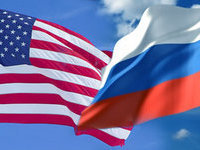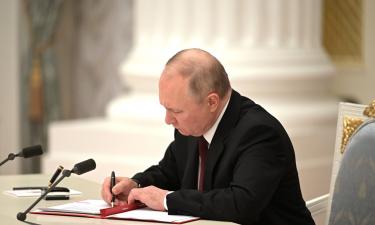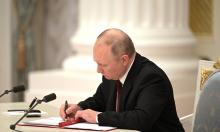US State Department ignores beam in its own eye
The U.S. State Department commented on the decision of the Federation Council of Russia, after the latter supported the so-called "Dima Yakovlev Law". U.S. Ambassador to Russia, Michael McFaul, did not keep silence either.

On Wednesday, the Senate unanimously approved the bill, which became a response to the "Magnitsky Act" signed by U.S. President Barack Obama on December 14th. To be more precise, Obama signed the law about the normalization of trade relations with Russia. The "act" is just a part of it. However, that part minimizes all the positive effects of the whole law. Needless to say that the law itself has been lost in the controversy.
However, they speak about Russian's response to the US act mainly because of the section that prohibits the adoption of Russian children by U.S. citizens. In addition, the law provides for the suspension of "political" NGOs that receive funds from U.S. citizens. In addition, Russian Federation citizens that hold the U.S. citizenship are forbidden from chairing nonprofit organizations.
The U.S. State Department also decided to focus on the prohibition of adoption. According to Patrick Ventrella, it is wrong to associate the fate of children with political considerations that are not related to them. The official stressed out that the State Department regrets the Federation Council approving the law instead of supporting the US-Russian agreement on cooperation in the field of adoption, which entered into force in November 2012.
It is worth noting that one of the main reasons for the ban on adoptions is connected with the difficulties that Russian officials face when they try to find out how Russian children live in adoptive American families. The U.S. Department of State would previously ignore the problem. And now, after Russia may soon ban the adoptions of Russian children by American families, officials in Washington urge not to politicize the issue ...
U.S. Ambassador to Russia Michael McFaul also commented on the decision of the Federation Council. "I agree with hundreds of thousands of Russians who do not want children to be the subject of political debate. I am saddened with the results of the vote in the Federation Council," McFaul tweeted.
Indeed, many Russian citizens do not approve the move. But on the other hand, a lot more people support it. According to a survey of the Fund "Public Opinion", 56 percent of Russian citizens support the ban on adoptions of Russian children by U.S. citizens, 21 percent oppose the law, whereas 23 percent were undecided.
Executive Director of UNICEF, Anthony Lake, also expressed his views about the new law. "We are asking the Russian government to proceed from children's interests when developing measures to protect children," Lake said in a statement.
"We need an alternative to placing children in orphanages, in particular, the practice of foster families and adoptions within the country and abroad," Anthony Lake said.
"All children deserve to live in an environment conducive to their well-being," he also said. Russian children should be surrounded by caring families or by the conditions that would be as close to that as possible, the Executive Director of UNICEF said.
It appears that UNICEF does not have an idea of realities in Russia. The above-mentioned recommendations (which are obvious without any reminders) have been served up the way as if Russia does nothing in this respect. Although this is not the case.
As for the Russian response to the "Magnitsky Act," it is now for Vladimir Putin to say his word on the matter. He will have to make a decision on the law within two weeks after the Senate vote.
Anton Kulikov
Pravda.Ru
Subscribe to Pravda.Ru Telegram channel, Facebook, RSS!





